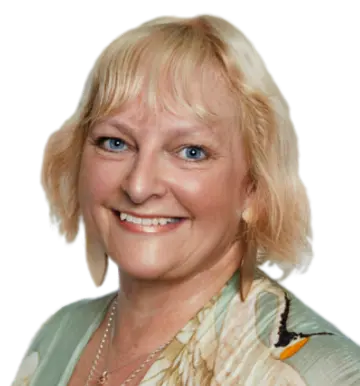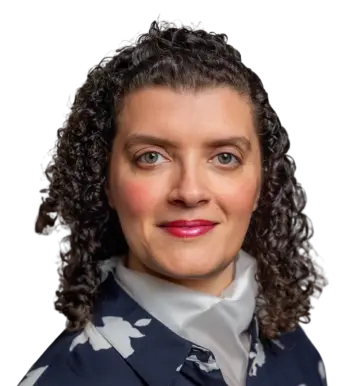- Are you a survivor of some form of childhood abuse? Or of an adult narcissistic abusive relationship?
- Feel unable to confide your painful memories and feelings of guilt, shame and anger with those around you?
- But sick of the unbearable pain, and the devastation that it constantly causes on your life?
How can abuse counselling help me?
Abuse counselling provides a safe space to let go of the burden you’ve been carrying, and finally be listened to and understood. If you suffer from memory loss around physical or sexual abuse, it is a place to feel validated and seen.
Nothing you share with an abuse counsellor will shock or offend them. Nor will they judge you. They will understand what you have gone through, and help you see that you are a resourceful, worthy person, no matter what experiences you have lived through, or what coping mechanisms you might have resorted to.
The benefits of talk therapy for abuse and trauma
- understand how your past is affecting your present
- let go of long held secrets and experience emotional release
- recognise your worth and the inner resources you already have
- stop the endless cycle of self blame and replace it with self-compassion
- learn new ways of coping that are productive and not destructive
- get tools to deal with painful memories, flashbacks, or nightmares
- see new perspectives for your future
- get help with related issues like anxiety, depression, substance abuse, and disordered eating.
Why choose Harley Therapy™?
Abuse and trauma decimates our sense of self, and can leave us oversensitive, or hidden behind protective false selves. An unseasoned therapist, or one who doesn’t fully understand trauma, can misunderstand your coping mechanisms, or push you to talk before you are ready. You can be left with more trust issues than when you started.
At Harley Therapy we only offer seasoned abuse therapists with a minimum of ten years of experience. Passionate about their work, they are also all trained in several schools of thought and able to create a bespoke treatment to match your individual needs.
Regardless if it is emotional, physical, or sexual abuse that you have gone through, we can help. Call us now on 020 8015 1006 to discuss an assessment, or book online.
Abuse in childhood
Childhood abuse can feel like a shameful secret. But it’s unfortunately very common. The Office of National Statistics (ONS) estimates that at least one in five children in the UK suffer some sort of child abuse before the age of sixteen.1
If we don’t get the help we need for abuse or trauma in childhood, we end up an adult with a loose sense of identity, poor emotional regulation, and negative, damaging beliefs buried in our unconscious. These can lead us to endlessly sabotage our relationships, happiness, and success.
We are left lonely, blaming ourselves, and feeling that there is something wrong with us that we simply can’t fix. But we can, with the right support and understanding.
What sorts of therapy helps with abuse?
The National Institute for Health and Care Excellence (NICE) suggests cognitive behavioural therapy (CBT) and systemic therapy for children under the ages of 18.2
For adult survivors of abuse, CBT can be helpful to stabilise your emotions and thinking, as can eye movement desensitisation and reprocessing (EMDR).
Long-term therapies that are designed for survivors of child sexual abuse with emotional oversensitivity or borderline personality disorder (BPD) include schema therapy, dialectical behaviour therapy (DBT), cognitive analytical therapy (CAT), and mentalisation-based therapy.
The different kinds of abuse
Physical Abuse includes hitting, shaking, burning, choking, starving, drugging someone, and all other actions that cause physical injury to the body. Mugging can also be a form of physical abuse.
Sexual Abuse covers actions such as rape, sexual assault, forced sex, and child sexual abuse. Note that the definition of child sexual abuse has now expanded to include things that do not involve touch, including showing a child sexual imagery, or speaking of sexual acts in front of them.
Emotional Abuse includes being criticised constantly, threatened, bullied, dismissed, or being yelled at. Emotional abuse can be just as painful and damaging as physical abuse.
Psychological abuse includes emotional abuse, but also involves things like being manipulated, not being allowed to see your loved ones and friends, being told things didn’t happen when they did, having your things damaged or stolen to upset you, or cruelty towards your pets and children.
Domestic abuse can be a blend of all of the above forms of abuse, that is carried out by someone you know well, like a partner or family member.
Narcissistic abuse is enacted by someone with narcissistic traits or narcissistic personality disorder and can be emotional, psychological, or even physical. Individuals with NPD typically have an inflated sense of their own importance, a need for excessive attention and admiration, and have a lack of empathy for others.
Coercive control is a form of domestic abuse where you are made to feel so afraid of a partner or family member you lose self-esteem and feel forced to do what they tell you to.
Neglect can occur when adequate food, housing, clothing or medical care is not provided, and is commonly a childhood issue.
Emotional neglect means that you are not given the love, attention, acknowledgement and support that a child needs to thrive.
Economic abuse often occurs alongside other forms of abuse. It means your access to economic resources is limited so that your perpetrator can control and manipulate you. This can look like not being allowed to access your own bank account, only being given minimal amounts of money or less than what you need, or being stopped from getting a job or accessing the education that would make you employable.
How many sessions will I need?
The journey to overcoming abuse is an ongoing and courageous one, not a fast one. And it may be the case that it has to become harder before it gets better. But your therapist can support you through every step, empowering you so that you are able to move on and create a life you are happy to be in.
FOOTNOTES
- 1 Office of National Statistics (ONS). "Child abuse extent and nature, England and Wales: year ending March 2019".
- 2 NICE Guidelines for Child Abuse and Neglect. NG76. Published in Oct, 2017.
How to book your appointment
Call us now on 0345 474 1724 OR book online
All practitioners are qualified and accredited with reputable professional associations.
Therapy for all forms of abuse:
- childhood
- narcissistic
- domestic
- economic
- emotional
- neglect
- physical
- sexual
- psychological
- verbal.
Meet the Experts
Enquiry Form
To make an enquiry, please fill in this confidential form. Our dedicated administrators will review your needs and get back to you as soon as possible.




.webp)
.webp)
